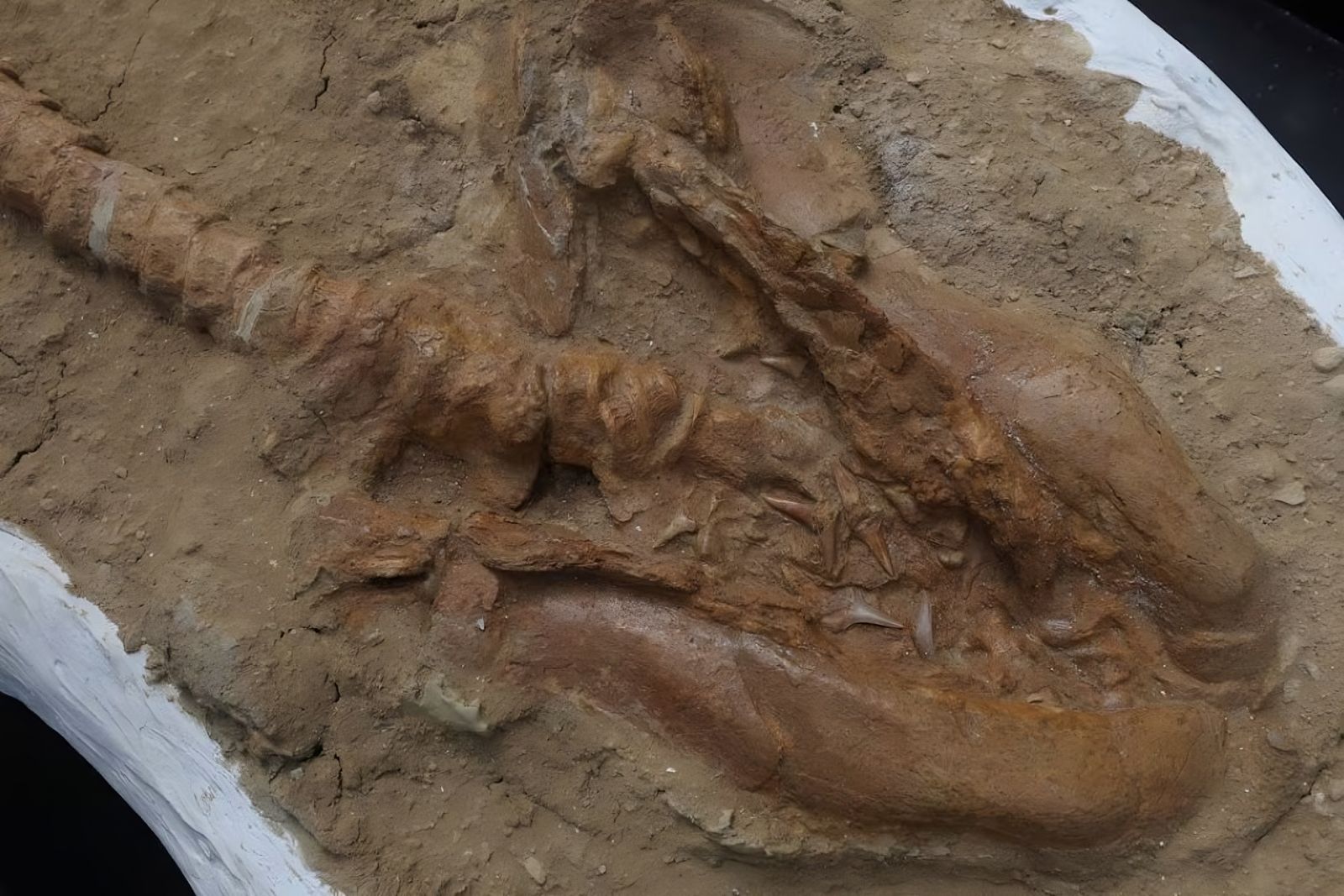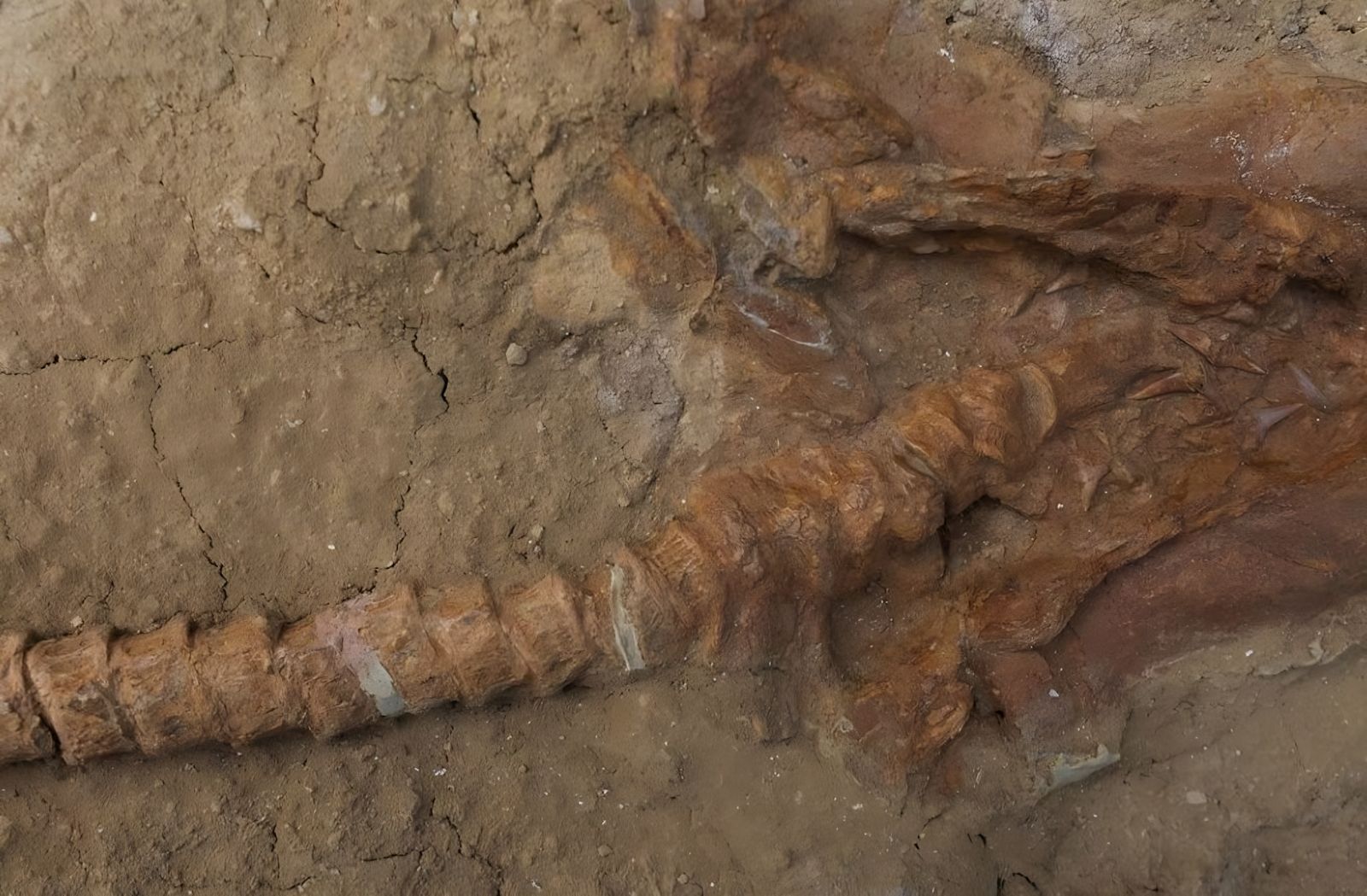Follow us on Google News (click on ☆)

Image DD News/X
The Pisco Basin in Peru is a renowned paleontological site, known for its favorable conditions for fossilization. This arid region has already yielded treasures such as ancestral crocodiles and giant dolphins. This time, an almost complete fossil of Cosmopolitodus hastalis, an ancestor of the great white shark, has been unearthed. This specimen, 9 million years old, is one of the best-preserved ever found.
A fearsome predator of ancient oceans
Cosmopolitodus hastalis measured nearly 23 feet (7 meters) and had sharp teeth nearly 3.5 inches (9 cm) long. This predator dominated the waters of the South Pacific millions of years ago. Its diet, primarily composed of sardines, made it a key player in the marine food chain.
The discovery of sardine remains in the fossil's stomach confirms its role as a top predator. These sharks regulated populations of small fish, contributing to the balance of marine ecosystems during the Miocene and Pliocene epochs. Their presence indicates a dynamic and resilient marine environment.

Image DD News/X
The study of this fossil provides a detailed look at the dental structure and jaw of Cosmopolitodus hastalis, highlighting its hunting techniques. The sharp, serrated teeth suggest a perfect adaptation for capturing and tearing apart its prey. This information helps reconstruct the lifestyle of this dominant predator.
A window into the oceanic past
This exceptional fossil allows scientists to better understand the anatomy and feeding habits of these extinct giants. It also reveals the importance of marine predators in maintaining ocean biodiversity. Research continues to deepen these insights.
The discovery of Cosmopolitodus hastalis underscores the interdependence of species in ancient marine ecosystems. Top predators, like this shark, played a crucial role in regulating prey populations and maintaining ecological balance. Their disappearance or decline would have had cascading effects on the entire food chain.
Finally, this find reminds us of the importance of fossil records in reconstructing the history of life on Earth. Each discovery, like that in the Pisco Basin, helps fill gaps in our understanding of past ecosystems. This knowledge is essential for anticipating the impacts of current climate changes on marine biodiversity.